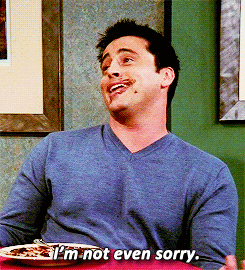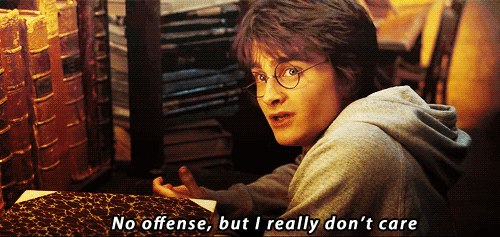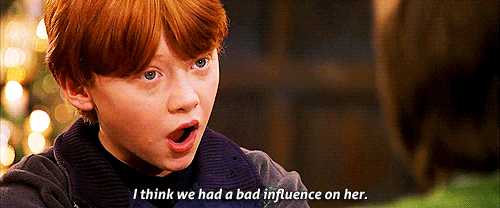We’re So Glad These “Harry Potter” Characters Did NOT Do as They Were Told
On the face of it, Hogwarts seems like a veritable hotbed of gratuitous rule-breaking. And sure, some of it was mostly there for the entertainment value (Fred and George Weasley: “You rang?”), but by and large, J.K. Rowling wrote characters who defied orders and thought for themselves in order to teach us something about choosing between what’s right and what’s easy. Call it “the importance of being naughty,” if you like.
There’s almost no character in any of the books who does what they’re meant to do all the time – even Percy Weasley has his moments! And of course, Umbridge probably wasn’t technically supposed to carve sentences into the hands of school students. But the kinds of rule-breaking we’re fans of are the bits of defiance that are really important to the way good triumphs over evil in the course of the books.
In these moments, J.K. Rowling teaches us something important about doing what you’re told, and it’s this: that sometime, in all of our lives, there will come a moment when we’ll know that we have to be brave and break the rules. We only hope we can match the courage of these badasses when we do.
1. HARRY POTTER, CIRCA EXAM TIME EVERY YEAR
Harry breaks so many rules all over the place that if he went to Muggle school he’d be expelled, and if he weren’t a wizard he’d be dead.
In the first book, he’s dashing to the bathrooms to help save Hermione from the troll and braving the forbidden third-floor corridor (and Fluffy) to thwart Quirrell/Voldemort’s creepy head. And by the seventh book, he’s breaking into Gringotts, which is certainly an escalation. Throughout the series, Harry displays, as Dumbledore massively understates it, “a certain disregard for the rules.” But it’s that same rule-breaking spirit, even when adults frown on it, that leads to the downfall of Voldemort.
He’s never arrogant about it, though; in fact, he barely seems to contemplate or weigh up the pros and cons of not doing what he’s told. He just recognizes the tough choices that need to be made in a situation and makes them. It calls for a lot of strength, discernment about which instructions are there for a reason and which are nonsense, and a devil-may-care attitude that many of us can only envy.

Source: Tumblr
Seriously though, he doesn’t even respect the girls’ bathrooms. Or the prefects’ bathroom. Or teachers’ offices. And there was that time he and Ron flew a car to school. When they were 12.

Source: Tumblr
2. THE TIME ALBUS DUMBLEDORE RAN HIS SCHOOL HOWEVER HE WANTED
…oh, wait, that was always.
Defying Lucius Malfoy, giving Harry an invisibility cloak so he could sneak around at night without being caught, any of Hagrid’s numerous creature-related violations (which always came in handy later, by the way), hiring a former Death Eater and a former werewolf… basically, Dumbledore cared deeply about his school and the welfare of its students; he just didn’t care for anyone telling him how to be Headmaster.

Source: Giphy
3. THE TIME REGULUS BLACK CHANGED HIS MIND ABOUT VOLDEMORT
Regulus suffered the ignominy of everyone assuming he’d died a coward, before it was revealed that he’d actually turned on Voldemort and replaced Salazar Slytherin’s locket – in which Voldemort had hidden a fragment of his creepy soul – with a considerably less evil piece of bling.

Source: ETOnline
On the surface, Regulus’s act seems like a small thing, and not even necessarily a particularly significant one; Dumbledore puts himself through a great deal of pain to attain the fake locket, and Harry has to destroy the real one later anyway.
But in a series where virtue, good character, and redemption are all defined through people’s choices (yes, I said that in my best Dumbledore voice), Regulus’s decision to face death in order to try to shaft the Dark Lord is a poignant glimpse into a character who was willing to sacrifice himself to try to right a wrong.
4. THE TIME NEVILLE COMMANDED A SECRET STUDENT MILITIA IN SEVENTH YEAR

Source: Tumblr
In the first book, Neville’s greatest act of courage is that of standing up to his friends in order to follow the rules, when he tries to stop Harry, Ron, and Hermione sneaking out of the dormitory at night. By seventh year, he’s braving torture to sneak into the Room of Requirement and practice his sweet fighting skills. I’m pretty sure some Weasley-grade rule-breaking had to have been involved in that logistical endeavor, and the Battle of Hogwarts couldn’t have been won without it.
5. SEVERUS SNAPE, ALL DAY EVERY DAY
I mean, Snape is contrary for a living, so it’s hard to tell where the “defying orders” bit ends and “oh, that’s just his personality” begins. But we do know for certain that he must have been an incredibly convincing spy to have kept Voldemort’s trust for so long, all the while ignoring Voldemort’s rules, and we also know that he pushed back against Dumbledore whenever he could.
But to me, the most impressive thing about the way Snape balanced the competing interests in his life is that he never tried to make anyone like him, never shied away from a job that might make people think he was awful. The moment he turned traitor to Voldemort, he probably knew he was signing his own death warrant, but he played the long game against Voldemort for years for no thanks or recognition. He really wasn’t holding out for universal popularity, just redemption for what he’d done to Lily Potter, his greatest love.

Source: TJBaer
6. THE TIME HERMIONE STOLE THINGS TO MAKE AN ILLICIT POTION
… and all the other hot messes those boys dragged her into.

Source: Pinterest
Or at least it seemed that way in earlier books, didn’t it? But by the end of the series, it became clear that Hermione did not care a whit for rules – or in fact, wizarding law – when they stood in the way of justice. And she’d managed enough mischief to scandalize even Ron. She also set a teacher on actual fire.

Source: Buzzquotes
7. THE TIME DRACO MALFOY REALIZED HE WAS IN WAY OVER HIS HEAD
JK Rowling has written thoughtfully and at length about what happened to Draco after the war, the upshot being that he didn’t have a personality transplant or anything, but he did try to become a better person, and he and his wife managed to break the cycle of prejudice they were raised with, for the sake of their child.
From the moment Draco fails to kill Dumbledore, to the moment he declines to identify Harry at Malfoy Manor, we get inklings that Draco is not irredeemable. He might not have a Gryffindor’s heart – but in a series where so few Slytherins get a chance for redemption, I love the fact that he and his family are in the Great Hall after the final battle, symbolic of a new beginning.
He was actually pretty rubbish at being a Death Eater anyway.

Source: Giphy
8. THE TIME LUPIN GAVE THE MARAUDER’S MAP BACK TO HARRY
Basically, Lupin was like, “Well, I’m not a teacher as of yesterday, so you may as well have this NSA-grade surveillance map of the school back.” It didn’t half come in handy, though. And it was nothing compared to what the Marauders got up to when they were at Hogwarts.

Source: Gifrific
HONORABLE MENTION
Everything Fred and George Weasley ever did. From Apparating around the house, to the fireworks display that signaled the end of their formal education, their antics weren’t always key to defeating Voldemort, but they did make a book with Umbridge in it a lot more fun, and for that we salute them. We’re just glad their mother didn’t have a nervous breakdown. It was touch and go.

Source: Giphy

